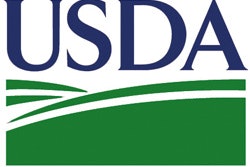This article first appeared in Food Manufacturing's June 2013 issue.
Chem.Info's recurring Dodging Disasters feature details the missteps and safety oversights that led to a recent plant disaster and provides actionable information to help processors avoid the same mistakes. Today we take a look at a recent incident at Sunland, Inc.
In September 2012, the FDA became involved with an investigation already underway by the U.S. Centers for Disease Control and Prevention (CDC) and local health agencies attempting to uncover the source of a salmonella outbreak that would eventually sicken 42 people across 20 states.
According to the FDA, by September 17, the agency had narrowed its focus to a New Mexico peanut butter processing plant run by Sunland, Inc., which returned positive tests for salmonella. In fact, the facility had been testing positive for salmonella prior to the FDA investigation, as an FDA report, released on February 5, 2013 states that “between June of 2009 and August of 2012, Sunland Inc. had distributed, or cleared for distribution, portions of 11 lots, or daily production runs, of peanut or almond butter after its own testing program identified the presence of at least one of nine different Salmonella types.”
The FDA’s investigation into the cause of the contamination noted several potential causes, including:
- Improper handling of food-contact equipment, containers and utensils.
- Poor hand washing, sanitation and glove-handling procedures.
- Missing documentation on cleaning of production equipment.
- Bags used to store raw and roasted peanuts were not cleaned.
- Water accumulation due to a leaky sink.
- Raw peanuts were stored outside in uncovered trailers, being exposed to birds.
- Facility doors were left open, allowing pests to enter.
This report followed a November 26, 2012 letter from the FDA to Sunland, Inc. announcing the suspension of the company’s food facility registration, effectively shuttering the plant until process changes could be demonstrated. This letter marked the first time the FDA exercised its power to suspend a plant’s operations, a power granted to the agency by the Food Safety Modernization Act, signed into law in January 2011.
An FDA notice to consumers stated that “Sunland’s proposed actions in response to FDA’s September 2012 inspection do not provide enough assurance that existing problems have been corrected or will be corrected in the future.”
Though the company was able to resume production of raw peanuts in January 2013, the FDA stated that Sunland, Inc. “may not resume processing or distributing ready-to-eat food until it completes additional corrective actions and receives written authorization from the FDA.”
The outbreak and shutdown at Sunland, Inc. had wide-reaching impacts on the food industry, damaging large retailers like Trader Joe’s and other food processing companies such as Smucker’s who purchased Sunland’s peanut butter for use in their own products. By making use of its newly minted powers, the FDA gave food processing companies further incentive to comply with regulations and work toward protecting public health.























